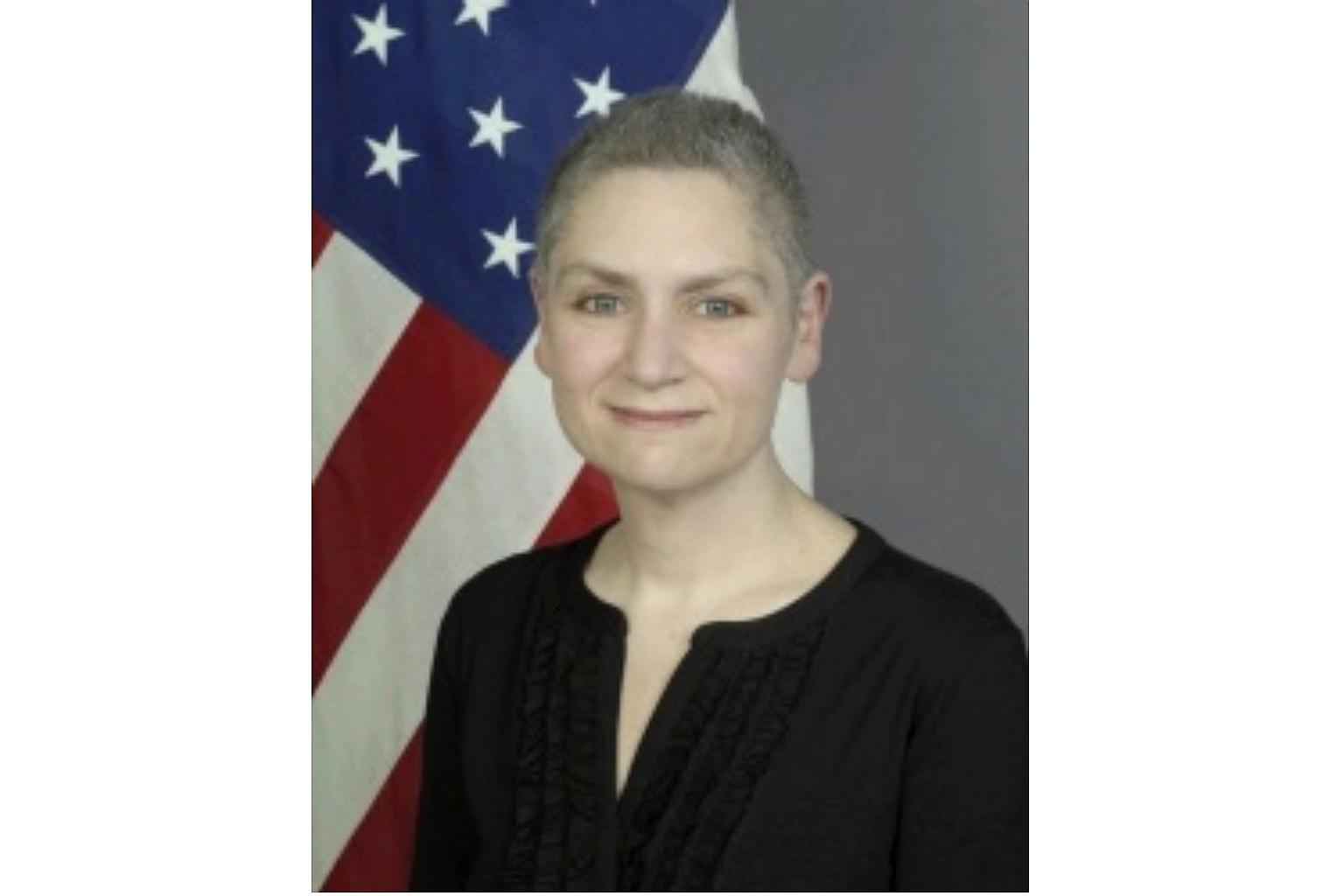US corporate interests, regional stability focus of American official's visit to Vietnam, Singapore
Sign up now: Get insights on Asia's fast-moving developments

Ambassador Tina Kaidanow, Principal Deputy Assistant Secretary of State for Political-Military Affairs.
PHOTO: UNITED STATES DEPARTMENT OF STATE
Follow topic:
WASHINGTON - Regional stability will be an overarching theme of an upcoming visit to Vietnam and Singapore by Ambassador Tina Kaidanow, Principal Deputy Assistant Secretary of State for Political-Military Affairs from Jan 28 to Feb 7.
In Hanoi Ms Kaidanow will lead the US delegation at the ninth round of the US-Vietnam Political, Security, and Defense Dialogue. In Singapore, she will join a US delegation at the Singapore Air Show.
"Talks (in Vietnam) will further promote the robust and growing bilateral relationship between the United States and Vietnam and reflect our shared commitment to ensuring a peaceful, stable, and secure Indo-Pacific region," the State Department said in a press note.
"Topics to be discussed include security cooperation and defense trade, maritime security, peacekeeping, counter-terrorism, and humanitarian issues."
Ambassador Kaidanow's Jan 28 to Feb 4 visit to Hanoi, Quang Tri and Hue comes on the heels of a visit to Vietnam by Defence Secretary James Mattis, during which the two sides agreed to work towards a visit to Da Nang in March by the aircraft carrier USS Vinson.
This would be the first ever carrier port call; previous visits have been by smaller US-flagged ships.
Vietnam and the US have warmed to each other as Hanoi also seeks to deal with an increasingly assertive China with which it has overlapping territorial claims in the South China Sea.
Public opinion towards the US in Vietnam, particularly among the country's post-war generation, is positive.
As of November 2017, the number of Vietnamese students in the United States had increased consistently for 16 straight years, making Vietnam the sixth leading country of origin for international students in the US.
The US has focused on extending assistance to Vietnam in cleaning up problems such as unexploded ordinance left over from the Vietnam war.
In May 2016, the Obama administration lifted a 40-year ban on the transfer of lethal weapons to Vietnam. Last year America sold a Coast Guard cutter to Hanoi; Ms Kaidanow is scheduled to meet with officers of Vietnams's Coast Guard aboard the cutter, which is now Vietnam's biggest coastal protection vessel.
"China is obviously a subject of interest for all of us… (and) we've made clear we believe strongly that China in the South China Sea needs to abide by international norms as do all of the partners," Ambassador Kaianow told The Straits Times on the phone.
"Everybody needs to act by those norms… and I think that's what Vietnam wants as well.
"But I don't think that's necessarily the focus, we will be dealing with a whole range of issues," she said.
"Maritime issues, regional security are of critical interest to us as well as Vietnam," she said. "Vietnam has tried to be a force for regional stability and we want to encourage that.
"I feel really good about the trajectory of our relationship with Vietnam," she added. "There are understandable historical issues that we have to overcome but in a relatively constrained period of time we've done remarkable things to enhance that relationship."
In Singapore from Feb 4 to 7, Ambassador Kaidanow will join a delegation of senior US officials at the Singapore Air Show, where she will "hold consultations on defense trade issues and promote more than 150 US companies and trade organisations exhibiting the latest aerospace technologies," the State Department said.
Ms Kaidanow will also meet US industry executives as well as senior civilian and military officials from other countries attending the event, to discuss issues of regional security, maritime security, and defense trade, the State Department said.
The visit to Singapore will be more directed at enhancing the environment for American companies.
"I believe strongly in enhancing the environment for our companies, we're going to do that, but we're also going to try and make sure it accords with all the things we're trying to do from a foreign policy vantage point," Ms Kaidanow said.
As in Vietnam, "each (country) has its own particular interests, it's a function of regional stability, a function of ensuring we talk about how to enhance ASEAN's efforts, give countries in the region an opportunity to articulate the issues they want to talk about," she said.

